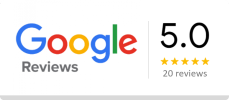When you’ve invested hours into crafting valuable content, it can be frustrating to see your website buried on page three of Google. You’re posting blogs, writing service pages, and even sharing on social media yet the traffic trickles in slowly, if at all.
The truth is that great content alone isn’t enough to rank on Google. Search engine optimisation (SEO) involves more than just writing it’s about structure, authority, user experience, and technical signals that tell Google your website deserves to be on top.
In this guide, we’ll explore the real reasons your website isn’t ranking, even with strong content, and what you can do to fix it.
1. You Don’t Have the Right Keywords in Place
Many businesses create content that’s informative but misaligned with what people search for. For example, a construction company might write blogs about “building safe homes” when their audience is searching for “home renovation Auckland” or “kitchen remodel cost.”
Google ranks pages based on relevance. If your content isn’t mapped to the keywords your audience is typing into search engines, it won’t appear in front of the right people.
How to Fix This:
- Do keyword research with tools like Google Keyword Planner, SEMrush, or Ahrefs.
- Focus on long-tail keywords.
- Place keywords naturally in your title, headings, URL, and meta tags.
Content without the right keyword targeting is like shouting into an empty room.
2. Your Website Has Technical SEO Issues
Even the best-written blog won’t rank if your site is riddled with technical SEO problems. Search engines need to crawl and index your pages, and if they can’t, your visibility suffers.
Common Technical Issues:
- Slow loading speed.
- No mobile optimisation.
- Broken links and 404 errors.
- Duplicate content from poor URL structures.
- Missing XML sitemap or robots.txt misconfigurations.
Solution:
Run an SEO audit using tools like Screaming Frog, Ahrefs, or Google Search Console. Fix crawl errors, compress images, improve hosting performance, and ensure your website is responsive on all devices.
3. Lack of High-Quality Backlinks
Google’s algorithm views backlinks as votes of confidence. You may have amazing content, but if no authoritative websites are linking to it, Google assumes it isn’t trustworthy enough to rank.
Why Backlinks Matter:
- They build domain authority.
- They increase referral traffic.
- They signal to Google that your website is credible.
How to Earn Backlinks:
- Publish original research, statistics, or case studies.
- Create shareable infographics.
- Write guest posts on industry-related sites.
- Reach out to local directories.
Without backlinks, your content is like a hidden gem that no one knows exists.
4. Weak On-Page SEO
Content can be well-written but poorly structured. Search engines rely on signals such as headings, meta tags, and internal linking to understand your page.
Mistakes That Hurt Rankings:
- Missing meta titles and descriptions.
- No H1, H2, and H3 hierarchy.
- Lack of internal links to other pages.
- Walls of text with no readability formatting.
Solution:
Optimise your content by:
- Including your primary keyword in the title tag, first 100 words, and headings.
- Writing meta descriptions that encourage clicks.
- Adding internal and external links to credible sources.
- Breaking content into short, digestible paragraphs.
5. Your Competitors Are Outranking You
Sometimes the problem isn’t your content it’s that your competitors are simply doing more. If another business in Auckland is investing heavily in SEO, backlinks, and paid ads, they’re naturally going to dominate the results.
Competitive Edge Factors:
- They have older, authoritative domains.
- They publish consistent content.
- They’ve invested in link-building campaigns.
- They use advanced SEO tactics like schema markup and local citations.
Solution:
Conduct a competitor analysis. See what keywords they rank for, what kind of backlinks they have, and how often they publish. Then aim to outdo them with better, fresher, and more optimised content.
6. No Local SEO Optimisation
For Auckland businesses, ranking globally isn’t the goal ranking locally is. Without local SEO, your content may be too broad, and you’ll miss the audience right in your area.
Key Local SEO Tactics:
- Optimise your Google Business Profile.
- Use geo-targeted keywords (“SEO company Auckland,” “website design Auckland”).
- Get listed in local directories.
- Collect and showcase Google reviews.
If your content doesn’t have a local angle, Google won’t know to show it to people in your city.
7. Your Website Isn’t User-Friendly
Google considers user experience signals when ranking websites. If visitors land on your page but quickly leave, it tells Google your content isn’t useful.
UX Problems That Hurt Rankings:
- Confusing navigation.
- Cluttered design with too many popups.
- Hard-to-read fonts or poor colour contrast.
- No clear calls-to-action (CTAs).
Fix This By:
- Improving page layout and readability.
- Making navigation simple and intuitive.
- Adding clear CTAs like “Get a Free Quote” or “Book a Consultation.”
8. Content Quality vs. Content Depth
Sometimes, your content is good but not great. Google wants authoritative, in-depth, and unique insights, not surface-level articles.
For example, a 500-word blog won’t compete with a 2,500-word detailed guide full of examples, case studies, and expert insights.
Solution:
- Write long-form, in-depth content.
- Add original data, charts, or infographics.
- Update old content with fresh stats.
- Ensure your content demonstrates E-E-A-T (Experience, Expertise, Authoritativeness, Trustworthiness).
9. Neglecting Social Signals & Promotion
Publishing content and waiting for Google to find it is not enough. You need to promote it.
Why Promotion Matters:
- Social shares drive traffic and engagement.
- More visibility increases the chances of backlinks.
- Strong signals of user engagement can indirectly help rankings.
Strategy:
- Share your content across LinkedIn, Facebook, and Instagram.
- Use email marketing to distribute it.
- Run small ad campaigns to boost visibility.
10. You’re Expecting Results Too Fast
Finally, SEO takes time. Even with high-quality content, backlinks, and a strong strategy, you may not see results for 3–6 months. Many businesses quit too early and never reap the rewards.
Google needs time to:
- Crawl and index your site.
- Evaluate your authority.
- Compare your site against competitors.
Patience, combined with consistency, is the ultimate ranking secret.
Final Thoughts
If your website isn’t ranking even with great content, it’s usually due to missing pieces in your strategy. Content alone doesn’t guarantee visibility you need the right keywords, technical foundation, backlinks, UX, and promotion strategy to truly climb Google’s rankings.
At Swaich Web Design, we specialise in helping Auckland businesses not only create beautiful websites but also ensure they rank on Google through powerful SEO strategies. If you’re ready to see your content actually bring in customers, let’s talk today.

